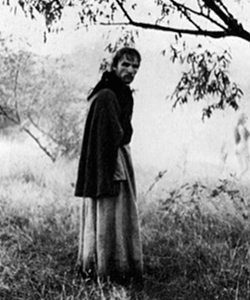Review: True Crime (1999)
Ever the genre director, Eastwood’s final film of the 1990s was True Crime. The second sequential box office and critical failure for the director, the film seemed the final nail in the coffin of Eastwood’s all too brief string of huge successes begun earlier in the decade.
A journalist jaded by a reputation as a philandering alcoholic, Steve Everett agrees to cover the story of Death Row inmate Frank Beechum. Uncovering in his investigation evidence to suggest the condemned man’s innocence, Everett races against the clock to save a life, neglecting in the process his own pressing domestic issues.
In years past, many of Eastwood’s finest hours have sprung from excursions in genre filmmaking, his effective deconstruction of established formulae often his most powerful tool as a director. True Crime, much like Heartbreak Ridge, appears intent on joining such films among Eastwood’s filmography, but falls short in its attempts thanks to its heavy reliance on a clichéd narrative. Everett dismisses Beechum’s pleas of innocence as the lies of a murderer, reluctantly covering the story while more concerned with problems in his own life. His discovery of a key piece of overlooked evidence is the catalyst to his increased involvement in the fight for Beechum’s life, and thus begins the race.
We all know this story, having seen it played out time and time again, and True Crime brings little new to the table. Feeling more like a daytime TV movie than a theatrical experience, it coasts along ticking all the boxes of the genre’s recipe. Its characters are generally uninteresting, its progression standard and straightforward, even its direction is unusually sterile and devoid of merit. The film’s finale is achingly predictable, conforming precisely to our exact expectations and leaving us with a stale aftertaste.
Almost everything in True Crime seems unmotivated and lazy, lacking innovation and energy and delivering a boring story in a dull manner. Its few good points are to be found in the supporting cast — Bernard Hill as the conscientious warden and Michael McKean as the prison priest — and its use of Everett’s quest as something of an attempt to save himself. As is often the case in such narratives, Everett’s “saving” of Beechum is a crucial step on the road to his own redemption; if he can save an innocent man from the clenches of death, he can surely turn his own life around and atone for his many errors. Lack of originality aside, this is True Crime’s strongest facet, the extent to which it paints Everett as a hopeless man aiding its utilization of this allegorical interpretation. He is a failed husband and father, putting his career above his family and rushing time with his daughter to the extent that he puts her in physical danger. The film does not avoid the harsh reality of his many flaws, in no way suggesting that his efforts to prove Beechum’s innocence excuse him from his shocking transgressions of parental duty. He too is condemned, sentenced, and desperately awaiting a pardon for his crimes.
Nothing in True Crime — not its writing, its direction, its main performances, or its conclusion — do anything to rescue it from its glorified TV movie status. Though not an entirely bad film by any means, the discouraging extent of the sheer laziness of its production betrays the lack of conviction of all involved. A straightforward genre outing delivered without any form of directorial panache, it remains a shameful end to a decade in Eastwood’s career that had the potential for so very much more.












 Review: The Greatest Movie Ever Sold (2011)
Review: The Greatest Movie Ever Sold (2011) Review: Space Cowboys (2000)
Review: Space Cowboys (2000) Review: The Yellow Sea (2010)
Review: The Yellow Sea (2010) Review: The Texas Chainsaw Massacre (1974)
Review: The Texas Chainsaw Massacre (1974) Review: True Crime (1999)
Review: True Crime (1999)


